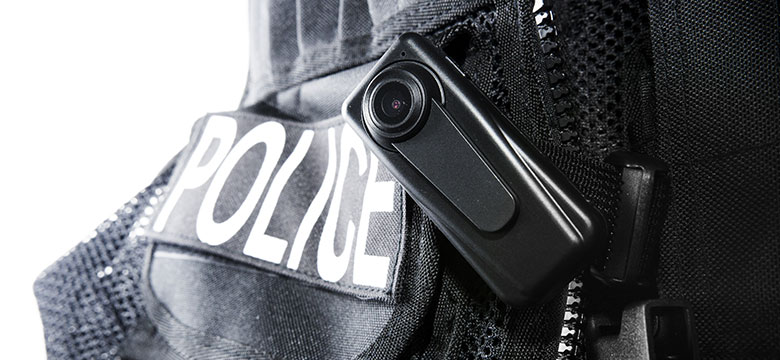Police Misconduct Lawyers in Pittsburgh, Pennsylvania

Police Misconduct and Civil Rights Violations in Pennsylvania
Police officers are supposed to uphold the law and protect innocent citizens. However, officers’ actions have become questionable in many situations where they interact with the public, such as during the Black Lives Matter protests in Pittsburgh and nationwide.
If you or a loved one was injured due to police brutality or another case of police misconduct, contact an attorney right away. These situations often result in wrongful arrests that require an aggressive defense.
What Is Police Misconduct?
The Pittsburgh Code of Ordinances Section 661.01(a) defines police misconduct as:
“…any alleged improper or illegal acts, omissions or decisions directly affecting the person or property of a natural person by reason of:
- A violation of any general, standing, or special orders or guidelines of the Police Bureau or Department of Public Safety; or
- A violation of any federal law or the Pittsburgh Code;
- Any act otherwise evidencing improper or unbecoming conduct by a police officer employed by the City of Pittsburgh.”
Types of Police Misconduct in Pennsylvania
There are three broad categories of police misconduct:
- Procedural – This type of misconduct refers to any action that violates police procedure.
- Criminal – This refers to any misconduct specifically against a local, state, or federal law.
- Constitutional – This includes any actions that violate a citizen’s civil rights.
Actual misconduct can often fall into more than one category. For example, a false arrest in which an officer beats the suspect is both a criminal and constitutional violation. It may even be considered procedural misconduct when it violates police union regulations.
Common Examples of Police Misconduct in Pennsylvania
When you think of police misconduct, you often associate it with police brutality. However, that is only one type of behavior that qualifies as misconduct. There are many examples of misconduct, including the following:
- Police Brutality – This refers to excessive force on someone beyond what is necessary for the situation. Police officers should have techniques that subdue a violent or dangerous suspect (or a weak, unarmed suspect) without intentional harm. The murder of George Floyd by a police officer in Minneapolis, Minnesota, in May 2020 is an example of police brutality.
- Abuse of Authority — Includes police actions that use their position of authority to perpetrate a crime or civil rights violation. This abuse may involve sexual abuse or forcibly coerced confessions.
- Bias/Racial Profiling – When an officer uses racial or other prejudicial attributes as the basis of an arrest, search, or harassment, it indicates bias or racial profiling. Profiling often when a police officer pulls over a male person of color because they “look suspicious.”
- Bribery, Kickbacks, or Extortion – A police officer should never receive extra compensation for their duties. They should also not turn a blind eye to crime with financial motivation. It is unlawful for law enforcement officers to use their position to take advantage of a financial opportunity.
- Falsifying Evidence – This can include planting evidence at a crime scene or making up false witness statements.
- False Arrest – An officer must have probable cause that a suspect committed a crime to make a lawful arrest. Without that probable cause, they wrongfully deny a person their constitutional right to freedom.
These are just a few examples of police misconduct. If you think you are the victim of police misconduct, call a lawyer who can look into the situation and help you file a report with the appropriate agencies.
What Should I Do If I’m the Victim of Police Misconduct in Pennsylvania?
First, you should contact an attorney right away. You will have to interact with the government when reporting police misconduct. While they should accept your report, they may try to protect the police officer and place blame on you. It would help if you had someone on your side to represent your rights and make sure your story is heard.
Reporting Police Misconduct in Pittsburgh, PA
Incidences of police misconduct in Pittsburgh, Pennsylvania, should be reported to the Office of Municipal Investigations (OMI). They handle citizen complaints about misconduct by any employees of the City of Pittsburgh, including fire, EMS, and police.
The Citizen’s Police Review Board (CPRB) also investigates complaints against police officers. This independent review agency can investigate allegations and hold public hearings. During those hearings, they may review complaints, question witnesses, and elicit testimony from police officers.
How Is Pittsburgh Cracking Down on Police Misconduct?
In the past, complaints of police misconduct often got swept under the rug. Officers would either escape discipline entirely or take a few days off. When they returned, the alleged police misconduct would continue.
However, in July 2021, the Pennsylvania Attorney General, Josh Shapiro, announced the launch of a statewide police misconduct database. The database will track complaints and confirmed cases of misconduct. It will identify officers with a history of “red flags” to warn other law enforcement agencies who might hire them.
The database is not accessible to the public; however, police departments must use it when hiring new officers. Suppose a department hires an officer who has a history of discipline. In that case, the department has to write a public report explaining their reason for hiring them.
Get Help from a Pittsburgh Police Brutality Lawyer
If you were injured or wrongfully arrested because of police misconduct, our experienced criminal defense attorneys at Worgul, Sarna & Ness, Criminal Defense Attorneys, LLC, can help.
Call us today at (412) 281-2146 or use our online contact form for a free consultation.